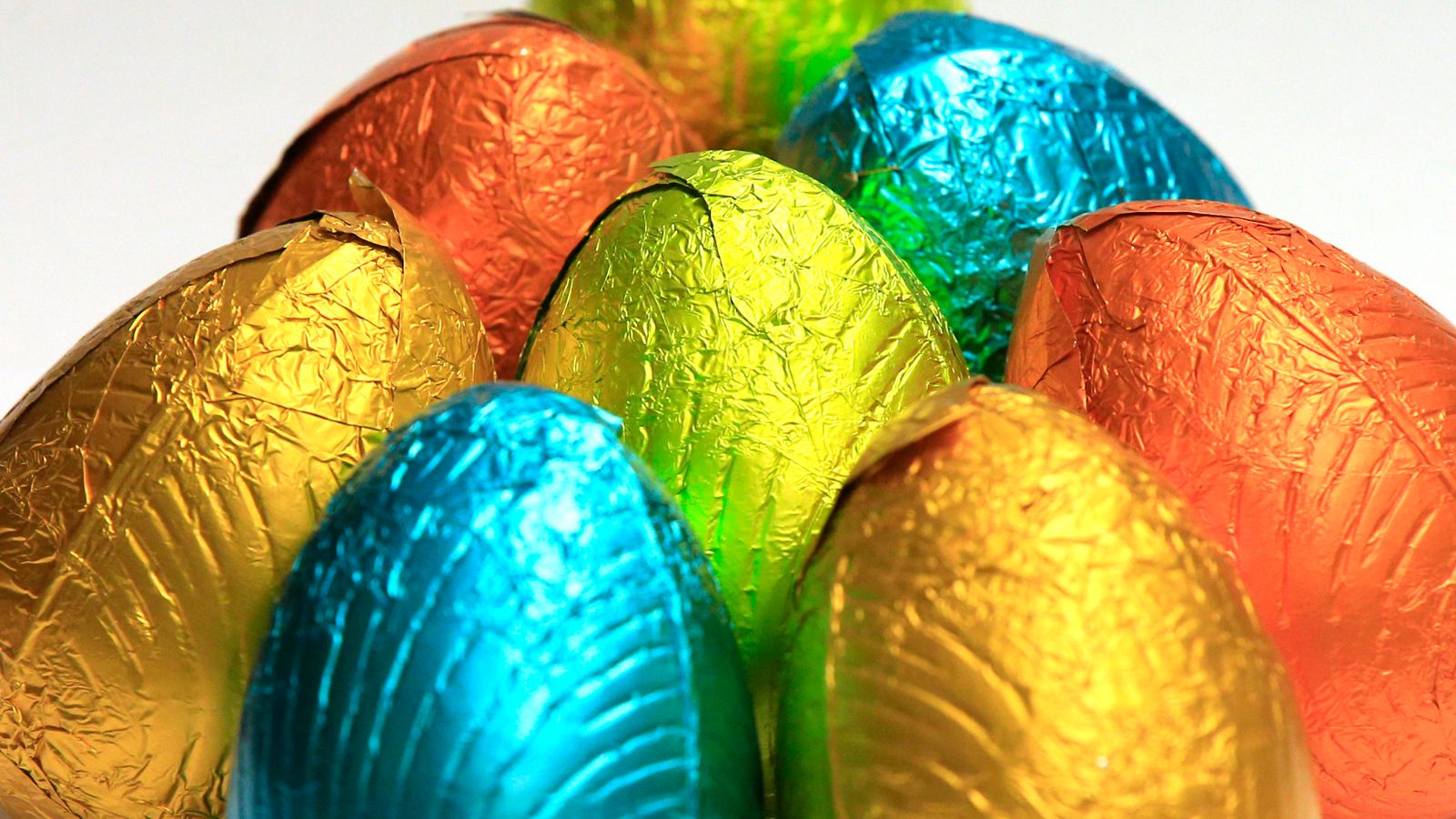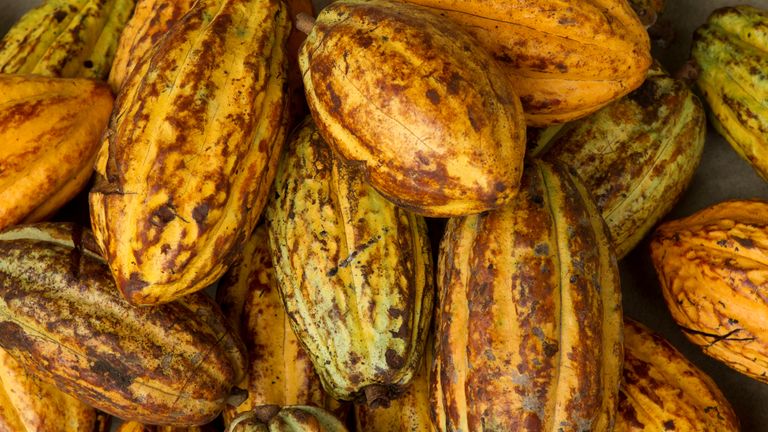Chocolate among items feeding grocery inflation ahead of Easter


Chocolate is among the products placing upwards pressure on grocery inflation in the run-up to Easter, according to closely-watched supermarket data.
Kantar Worldpanel, which tracks pricing and market share, reported a further slowing in the pace of price growth across the sector over the four weeks to 17 March.
It said the annual rate for grocery inflation eased to 4.5% – down from the 5.3% figure recorded the previous month.
The report credited price matching guarantees across the industry, as shoppers continue to seek out value amid the wider cost of living crisis that is continuing to damage household spending power despite wage growth firmly outstripping the rate of inflation.
Manufacturers of some goods are enduring a second wave of price pressures as the effects of Russia’s war in Ukraine ease for many others.
Tough harvests have also pushed up the cost of key commodities such as cocoa and sugar.
Kantar reported that prices were rising fastest in markets such as sugar confectionery and chocolate confectionery.
They were falling fastest in butter, milk and toilet tissues, it found.
Please use Chrome browser for a more accessible video player
0:44
Bank of England sees progress in inflation battle
A separate study last week pointed to rises of up to 50% for some Easter eggs compared to the previous season.
Advertisement
However, Kantar reported that the increases did not appear to have put people off.
“Take-home grocery sales rose by 4.6% over the four weeks to 17 March, with an early Easter boosting sales of seasonal treats in the first three months of 2024 by £88m compared with the same period last year.
The company’s head of retail and consumer insight, Fraser McKevitt, said: “With Easter on the horizon, consumers have been stocking up on classic seasonal treats, with a quarter of people picking up four or more items when buying chocolate eggs.
“This rises to 29% for shoppers aged over 65, suggesting that many grandparents are planning to indulge their families this weekend.
“People in Wales and the north of England are among the biggest spenders, shelling out £14.18 and £13.84 on Easter eggs on average respectively in the past three months.”
The outlook for chocolate costs looks no brighter, with data on Monday showing fresh record highs for cocoa.
Dry weather in west Africa has been blamed for costs more than doubling in the year to date.

Susannah Streeter, head of money and markets at Hargreaves Lansdown, said: “Already big manufacturers like Cadbury owner Mondelez have warned that they may have to raise prices again as a consequence.
“The upswing in cocoa prices, to breach $9,300 per ton, is linked to concerns about tight supplies in west Africa, with some plants reducing activity due to financing issues.
“Shipments were down from Ivory Coast by almost a third between October and March compared to the same period last year. Sugar prices have dipped back from January highs but remain hovering near levels not seen since 2017.
“The surge in the cost of raw materials will prompt a fresh rethink of strategy among manufacturers. Bars have already been hit by shrinkflation and shoppers won’t be impressed by another Willy Wonka-style disappearing act.”